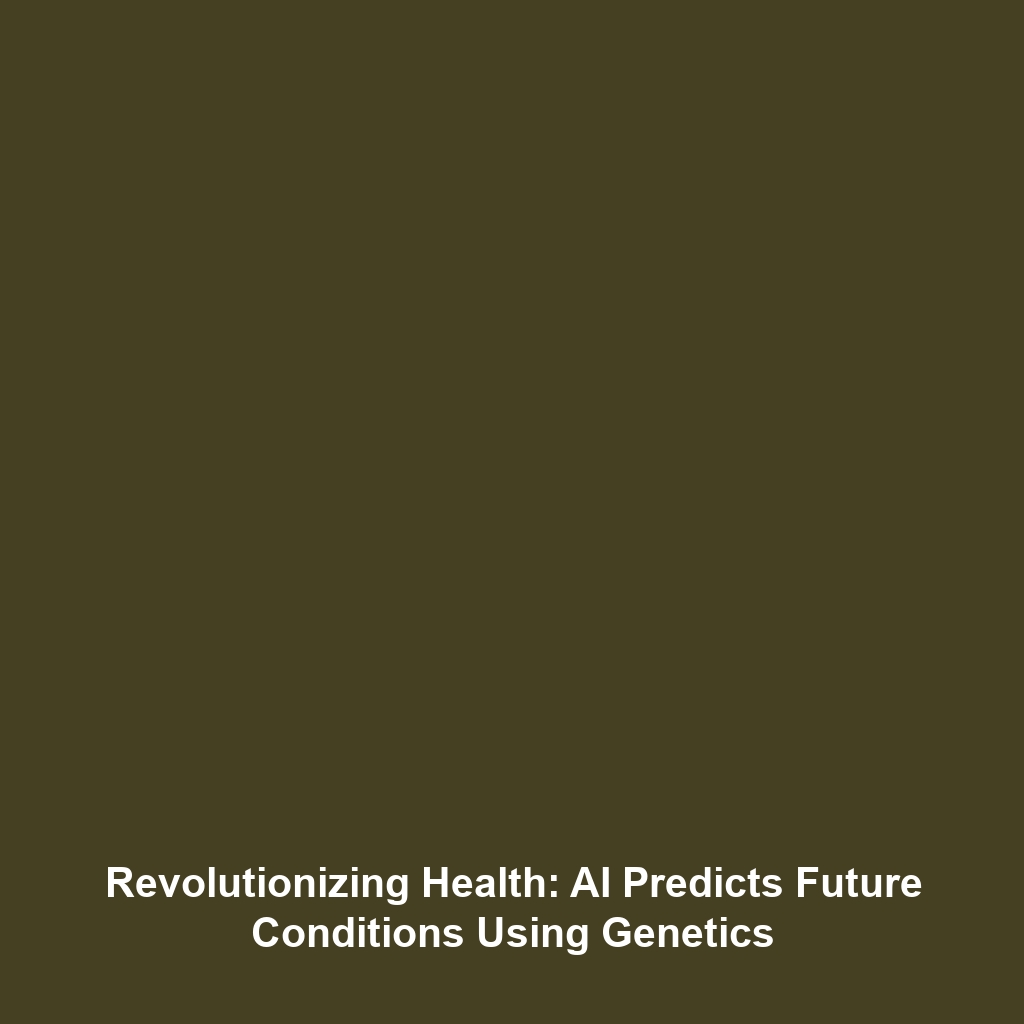Medical Records and Data Management: AI for Managing Electronic Health Records (EHRs)
Introduction
In the ever-evolving landscape of AI in Healthcare, the management of electronic health records (EHRs) is emerging as a crucial area of focus. Leveraging artificial intelligence for medical record management not only enhances the accuracy of data but also streamlines accessibility for healthcare professionals. With the potential to reduce administrative burdens and improve patient outcomes, AI-driven solutions are becoming indispensable tools in healthcare settings. Understanding the significance of AI in managing medical records lays the groundwork for exploring its profound implications in healthcare data management.
Key Concepts
To grasp the potential of AI for managing electronic health records (EHRs), it is vital to comprehend several key concepts:
- Data Interoperability: Ensuring seamless communication between different EHR systems is critical for effective healthcare delivery.
- Predictive Analytics: AI can analyze vast amounts of patient data to predict health outcomes, assisting clinicians in decision-making.
- Natural Language Processing (NLP): Technologies that allow computers to understand and interpret human language can enhance data entry and retrieval processes.
- Machine Learning: Algorithms that enable EHR systems to learn from data patterns improve accuracy over time.
Applications and Real-World Uses
Understanding how AI is used in managing electronic health records (EHRs) highlights several practical applications:
- Automated Data Entry: AI tools significantly reduce the manual workload by automating the transcription of clinical notes, thus enhancing efficiency.
- Personalized Patient Care: By analyzing historical data, AI can help in tailoring treatment plans specific to individual patient needs.
- Streamlined Billing Processes: AI can identify discrepancies in billing and coding, leading to fewer errors and faster reimbursements.
Current Challenges
Despite its advantages, the implementation of AI in managing electronic health records (EHRs) faces several challenges:
- Data Security: Protecting sensitive patient information is paramount and remains a persistent challenge.
- Integration Complexity: Merging AI solutions with existing healthcare systems can be technically complicated.
- Regulatory Compliance: Ensuring that AI tools comply with healthcare regulations is essential and can be a significant hurdle.
Future Research and Innovations
Looking ahead, numerous innovations are on the horizon that could reshape the field of AI in Healthcare:
- Advanced AI Algorithms: Future research aims to develop sophisticated AI models that enhance predictive analytics capabilities.
- Integration with Wearable Technology: Merging data from wearables with EHR systems may provide healthcare professionals with real-time insights.
- AI-Driven Decision Support Systems: Innovations in this area promise to assist doctors in making informed clinical decisions based on comprehensive data analysis.
Conclusion
The transformation of medical records and data management through AI, particularly in the management of electronic health records (EHRs), highlights the vital role that artificial intelligence plays in improving healthcare outcomes. As organizations continue to embrace these technologies, further innovations and research will be crucial for overcoming existing challenges. Healthcare professionals are encouraged to explore AI solutions that not only enhance efficiency but also prioritize patient care. For more insights on AI in Healthcare and digital health innovations, visit our additional resources.

Leave a Reply